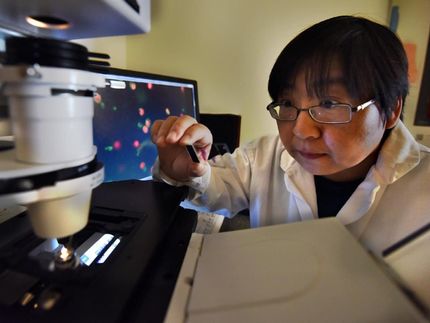Generex Biotechnology to accelerate development of vaccine for pandemic avian influenza
Novel vaccine technology boosting T helper cell response to Asian bird flu influenza promises increased population protection
Advertisement
Generex Biotechnology Corporation announced that Antigen Express, Inc., its wholly owned immunotherapeutics subsidiary, has re-organized its forces to speed development of a novel vaccine to protect against the H5N1 avian influenza. In particular, the President of Antigen Express, Eric von Hofe, will focus his efforts and those of the company on bringing this new vaccine into the clinic in the shortest time possible. A similar vaccine peptide, designed using a portion of a protein expressed in breast cancer cells modified with Ii-Key, is currently in clinical trials at the Walter Reed Army Medical Center.
A major drawback to current vaccine development efforts is the inability to manufacture enough vaccine in the event of an avian flu pandemic. Current estimates are that the total production capacity of the world for producing an avian flu vaccine using traditional methods is less than 40 million doses, at the cost of several 100 million dollars. A compounding problem in developing vaccines for the avian flu is that two doses are required to achieve protective immunity given that people have never been exposed to a flu virus similar enough to impart even partial immunological protection. Further, they can be produced in nearly limitless quantities using entirely synthetic means in existing facilities.
The great advantage of the Antigen Express vaccine is the ability to expand and strengthen the T helper cell response to a lower dose of classically produced vaccine. The Ii-Key/H5 hybrids can be synthesized less expensively and in large quantities. It is also expected that the vaccine hybrids will afford some significant degree of protection in humans who have received no other vaccine.
Scientists at Antigen Express are developing a vaccine for the potentially pandemic Asian bird flu (H5N1 strain), utilizing highly conserved fragments of the H5 protein to stimulate potent T-helper cell activity. This is important, as a strong T-helper response plays a major role in helping the body to develop neutralizing antibodies to the influenza virus. The H5 fragments are modified using a portion of an immunoregulatory protein (termed Ii-Key) that greatly facilitates their ability to stimulate T-helper cell responses specific to the H5N1 strain. The vaccine peptides have been selected for their likelihood of being both potent and active in more than 80% of the population.
Other news from the department science
Most read news
More news from our other portals
See the theme worlds for related content
Topic world Antibodies
Antibodies are specialized molecules of our immune system that can specifically recognize and neutralize pathogens or foreign substances. Antibody research in biotech and pharma has recognized this natural defense potential and is working intensively to make it therapeutically useful. From monoclonal antibodies used against cancer or autoimmune diseases to antibody-drug conjugates that specifically transport drugs to disease cells - the possibilities are enormous

Topic world Antibodies
Antibodies are specialized molecules of our immune system that can specifically recognize and neutralize pathogens or foreign substances. Antibody research in biotech and pharma has recognized this natural defense potential and is working intensively to make it therapeutically useful. From monoclonal antibodies used against cancer or autoimmune diseases to antibody-drug conjugates that specifically transport drugs to disease cells - the possibilities are enormous

















































